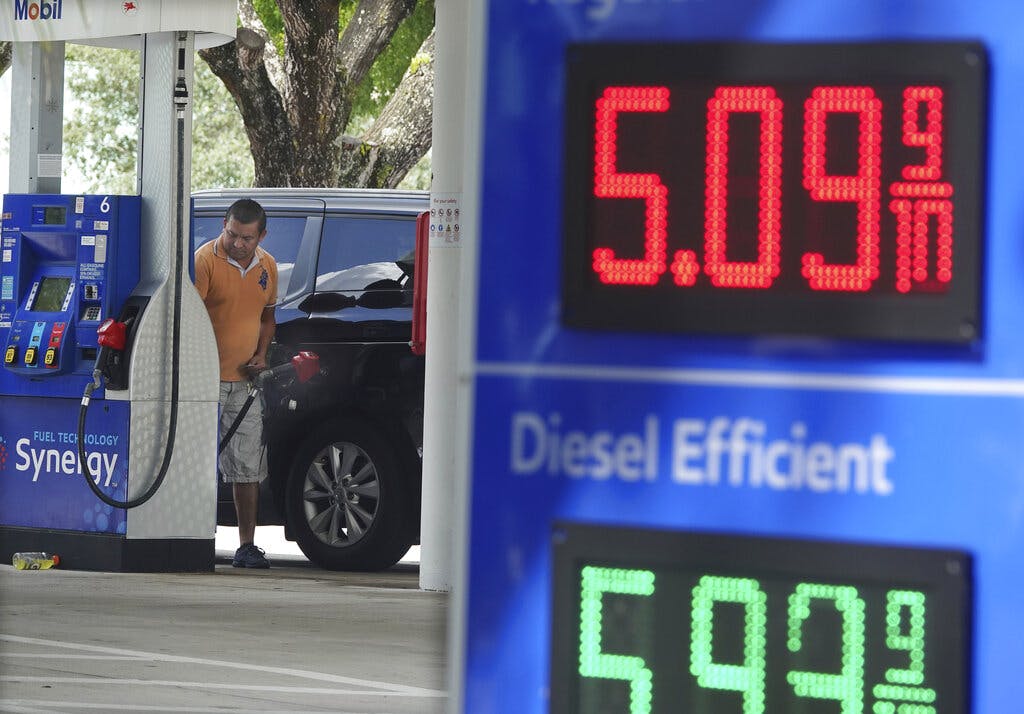Inflation Is Feasting on the Democrats’ Voter Base
Economists at the New York Fed find that ‘Black, Hispanic, and middle-income households were most affected by rising inflation’ between June 2019 and December 2022.

The great bigot of inflation is coming for the wealth of low-income African Americans and Hispanics. With these key Democratic constituents feeling the bite, the party faces a tough road to retaining the Senate and White House in 2024.
We can’t say you read it here first because the alarm is being sounded by the Federal Reserve Bank of New York.
The New York Fed — citing figures from the American Bureau of Labor Statistics, Consumer Expenditure Surveys, and Consumer Price Index — reports that while middle-income households bore the brunt of inflation in 2021, now it’s chewing up lower-income households.
Anxious to see improvement on President Biden’s watch, the New York Times reported on Monday that inflation is “turning a corner” and “cooling,” citing affluent, white, middle-class voters who no longer feel they’re “treading water.”
Focusing on that group ignores that inflation has just moved down the economic buffet to feast on those at the bottom. “As inflation has risen to forty-year highs,” writes Liberty Street Economics, a blog of New York Fed economists, “inflation inequality … has become an increasingly important concern.”
Between June 2019 and December 2022, the blog reports, “Black, Hispanic, and middle-income households were most affected by rising inflation … because a greater share of these groups’ expenditures is devoted to transportation. However, over the last five months, as transportation inflation has declined, these gaps have declined as well.”
According to the Fed, inflation is now gnawing at middle-income, black, young, and voters with less education in a way on par with the national average, but “the bottom 40 percent of households by income as well as Asian Americans,” according to a USA Today breakdown, “are being hit with the highest yearly inflation … because food,” up 10.4 percent, “and housing,” with rent up 8.3 percent, “make up more of their expenditures.”
Now, Liberty Street Economics writes, “It is likely the case that the same rate of inflation represents a greater welfare loss for lower-income than higher-income households because of the former’s lower capacity for substituting less expensive goods, greater liquidity constraints, and larger marginal utility of real income.”
This reality for those with smaller incomes reverses, USA Today writes, “the advantage they held earlier amid inflation.” Since these voters have smaller shovels with which to dig out of debt, it’ll take longer to recover, as they lean on credit cards as a stop gap.
In a separate blog post, Liberty Street Economics reported that during the pandemic, all income groups saw their credit card balances shrink, but the New York Fed’s latest quarterly report found that card balances increased 15 percent in a year, the largest leap in over two decades.
There were few places to spend during the lockdowns, and low-income jobs tended to go on behind masks, but credit card debt for those groups have “increased since and have surpassed the average from December 2019.” Bankrate predicts “the average interest rate for a credit card will climb to 20.5 percent this year,” and urges consumers to “brace for more interest rate shock in 2023,” a “hidden tax” on top of inflation itself.
With higher interest rates, low-income voters will still be laboring under the debt they accrue today by the time they choose the next president. Retaining control of the Senate will also be a challenge. “Democrats are defending eight vulnerable seats,” Roll Call reports, “while Republicans don’t have any.”
Mr. Biden could seek debt forgiveness as he did with the limited student loan plan that was halted by the courts. That would be another good PR stunt, but legislation for actual relief would have to pass a Republican House with a mandate to halt inflationary spending, not add to it.
Democrats have few tools to offer their base help — and they won’t be able to point to the Inflation Reduction Act if its impact remains limited or even worsens the problem which, like most challenges, impacts those with the least the most.
With 2024 electoral trends favoring Republicans at both ends of Pennsylvania Avenue, Mr. Biden’s party may find itself on the defensive with the very voters they need to hold onto power — and who, in their pain, may choose to bite Democrats at the ballot box.

